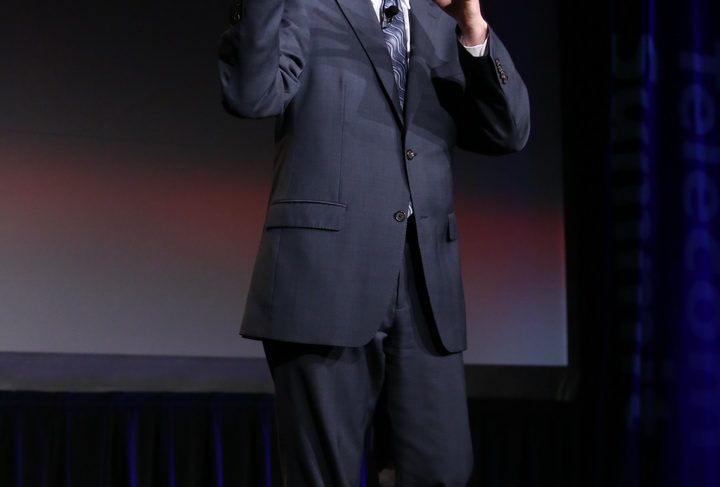
TORONTO—If you think web and wireless technologies have already changed the world a lot, you ain't seen nothin' yet.
That was the succinct message delivered by David Bray, the chief information officer (CIO) of the U.S. Federal Communications Commission (FCC), at the Canadian Telecom Summit on Monday. Speaking in a late-afternoon keynote session, Bray predicted that the rest of the decade will see even faster, more startling changes as smart, cheap mobile devices spread around the world and nearly everybody can access the Internet easily.
"It's like nothing we’ve seen before," said Bray, citing mind-boggling estimates of the numbers of smart phones that will be shipped and the amount of data that will flow over the world's wireline and wireless networks by 2020. For instance, he cited industry projections that there will be anywhere from 50 billion to 200 billion networked devices in play globally by the end of the decade, up from 7 billion devices last year. That adds up to more than six devices for each man, woman and child on the planet by then.
In his brief but energetic presentation, Bray spelled out his "Five Bold Principles" for service providers and others to navigate these fast-moving times. These principles call for 'big shifts in scale" of devices, data traffic and apps, "building connections" to historically underdeveloped parts of the world like Africa, building "bridges to the public" so that the private and public sectors can work together in developing new services and apps, embracing open-source and information-sharing to foster innovation and build trust, and empowering people around the world with powerful but low-cost computing and networking devices.
"So we're going to be going from a beach ball to the Sun in less than five years.” – David Bray, FCC
Bray stressed that a typical smart phone today possesses more computing power than the entire U.S. Pentagon had at its disposal back in 1980. He also noted that most smart phones will cost less than $45 in the future. These kinds of developments, he contended, are going to "super-empower" people around the globe.
Noting that the world is now shifting from the old IPv4 Internet addressing system to the newer IPv6 addressing system, Bray also emphasized that the new system will generate countless more opportunities for web connections. If all the IPv4 addresses could be squeezed into a single beach ball, he explained, it would take an object as big as the Sun to hold all the possible IPv6 addresses if they were similarly sized.
"So we're going to be going from a beach ball to the Sun in less than five years," he said. He left it to the audience to consider the implications.
Photo by Michal Tomaszewski / Pinpoint National



